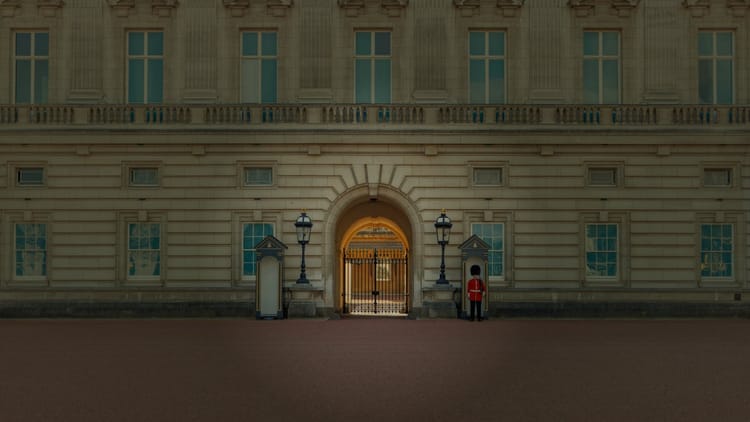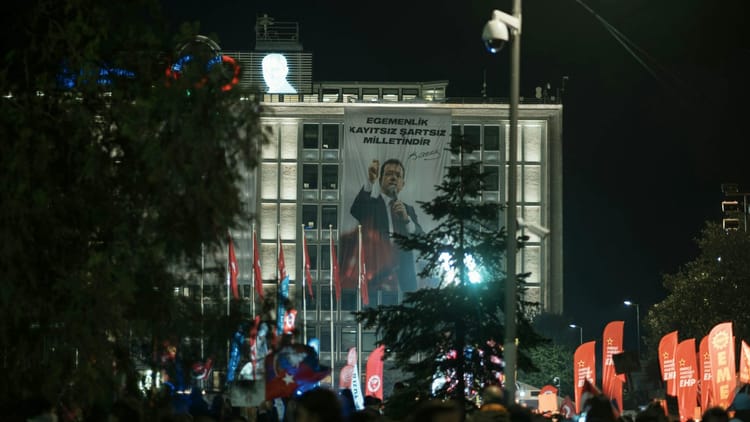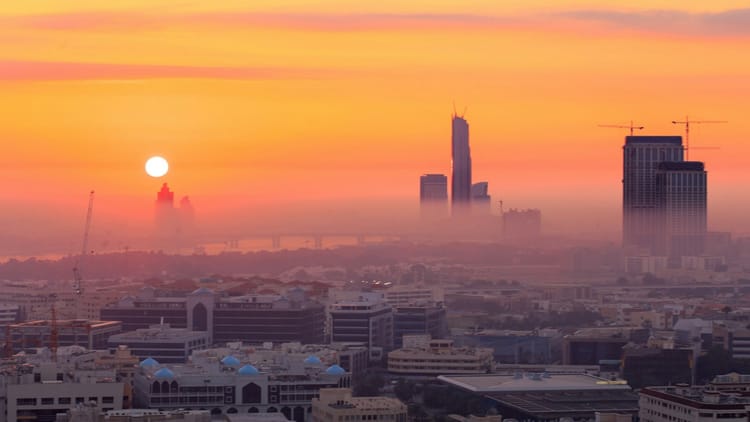Testing boundaries

Recently: Comedians, autocrats, and presidential power. How influence works when the rules break down. &c. | The member’s despatch, Week XXXVIII.
Today: European allies threaten to shoot down Russian aircraft if they keep crossing into NATO territory. Jimmy Kimmel returns to ABC after White House pressure forced his suspension. Kim Jong Un signals openness to talking with the U.S.—while keeping his nukes. A ransomware attack cripples major European airports. U.S. Tech workers scramble as new H-1B visa fees create chaos over the weekend. & The Trump administration has issued an unusual warning against women using acetaminophen during pregnancy.
For members: Nine Western countries just recognized Palestinian statehood. What does that mean?
& New music from Suede ...
Inscrutable flying objects
Poland’s foreign minister, Radosław Sikorski, delivered a diplomatic warning at Monday’s emergency UN Security Council session—with a distinctly undiplomatic edge: “If another missile or aircraft enters our space without permission, deliberately or by mistake, and gets shot down and the wreckage falls on NATO territory, please don’t come here to whine about it.”
Estonia called the meeting after three Russian MiG-31 fighters came into Estonian airspace as though they were taking the scenic route on Friday, lingering for 12 minutes in what Estonia’s foreign minister, Margus Tsahkna, called an “unprecedentedly brazen” violation.
Tsahkna arrived at the UN armed with radar printouts and photographs of the jets—“carrying missiles and were combat-ready,” he noted—accusing Moscow of lying systematically about “crystal clear” violations of Estonian sovereignty.
The Estonian escapade followed weeks of Russian aircraft treating NATO borders with studied indifference. Poland shot down Russian drones earlier in September—the first time the alliance has fired shots since Moscow invaded Ukraine in February 2022—while Romania dealt with its own drone breach. Both Poland and Estonia have now invoked Article 4 consultations—the alliance’s formal mechanism for urgent consultations when a member’s security is at risk.
Dmitry Peskov dismissed Estonian claims as “empty” and “unfounded.” The pattern suggests Moscow is either deliberately probing Western resolve or has somehow developed an inability to control its own aircraft—which wouldn’t necessarily be less troubling. As Mike Waltz, the U.S. ambassador to the UN, noted, “Either scenario is very disconcerting.”

Meanwhile
- The American TV comedian Jimmy Kimmel’s show will return to the ABC network on Tuesday night after Disney suspended it last week in response to federal pressure. The company acknowledged it made the decision to avoid “further inflaming a tense situation,” calling Kimmel’s comments about Charlie Kirk’s killing “ill-timed and insensitive.” … From this week’s member’s despatch, see “Laughing matters: The speed of federal retribution in America.”
- North Korea’s Supreme Leader Kim Jong Un suggested on Sunday that he remains open to talks with U.S. President Donald Trump if Washington should drop its “obsession” with denuclearization. Kim told North Korea’s parliament he still has “fond memories” of the American president—while declaring his nuclear weapons “irreversible.”
- Companies across Silicon Valley scrambled over the weekend as the U.S. administration’s $100,000 fee for H-1B visas triggered confusion and frantic travel by tech workers rushing back to the United States before the rules would take effect on Sunday—though the White House later clarified that existing visa holders were unaffected.
- European airports confirmed on Monday that a ransomware attack on Collins Aerospace caused the weekend’s widespread flight delays and cancellations at Heathrow, Brussels, and Berlin—the latest reminder of how the aviation industry’s efficiency-driven centralization can create single points of massive failure.
- & Later on Monday, Trump announced that his administration will warn pregnant women against using acetaminophen, the active ingredient in Tylenol, unless they’re suffering from fevers—linking the painkiller to autism—a development the American president teased, to a certain confusing effect, during a publicly broadcast memorial service for Charlie Kirk on Sunday.

Wary of fast fashion?
Shop Congo Clothing Company and
make a difference—in style.
Your loyal guide to a changing world.
Membership with The Signal means exclusive access to premium benefits:
- Regular profiles on the questions behind the headlines
- In-depth feature interviews with our network of specialist contributors from across America and around the world
- The despatch, our weekly current-affairs and cultural-intelligence briefing
- Early access to new products, including print extras
It also means vital support for an independent new enterprise in current-affairs journalism.
The state of Palestine
What are nine Western countries suddenly recognizing?
Britain’s Prime Minister Keir Starmer appeared on video Sunday evening, speaking with the gravity of a wartime leader: “Today, to revive the hope of peace for the Palestinians and Israelis, and a two-state solution, the United Kingdom formally recognizes the State of Palestine.”
Within hours, Canada’s Prime Minister Mark Carney and Australia’s Prime Minister Anthony Albanese issued nearly identical statements—followed by Portugal’s foreign minister in New York. On Monday, France, Belgium, Luxembourg, Malta, and Monaco announced recognition at a UN summit, bringing the total to nine countries recognizing Palestinian statehood in two days.
The coordinated announcements came as Israel pressed its offensive into greater Gaza City, where hundreds of thousands of Palestinians are living under conditions of extreme duress, even famine.
Israel’s Prime Minister Benjamin Netanyahu responded immediately: “There will be no Palestinian state west of the Jordan River”—and promised Israel’s response would come after his planned meeting with U.S. President Donald Trump next week.
The Palestinian Authority, which these nine countries now formally recognize as the government of a sovereign state, controls parts of the West Bank—but not Gaza. There, Hamas—the organization all nine countries acknowledge started the current war and say must have “no role” in governing Palestine as a state—remains in control after nearly two years of this war.
The P.A.’s President Mahmoud Abbas has ruled the West Bank by decree since dismissing the Hamas-led government in 2007, holding no presidential or parliamentary elections since 2006 despite his term officially ending in 2009.
So what, exactly, are the nine recognizing?
- The sovereignty gap. Recognition typically requires a state to have territorial control, but the Palestinian Authority hasn’t governed Gaza since Hamas took power by force in 2007. So these countries are recognizing a “state” whose claimed government doesn’t control roughly half its territory—territory currently controlled by the very organization they insist must be eliminated from Palestinian governance.





